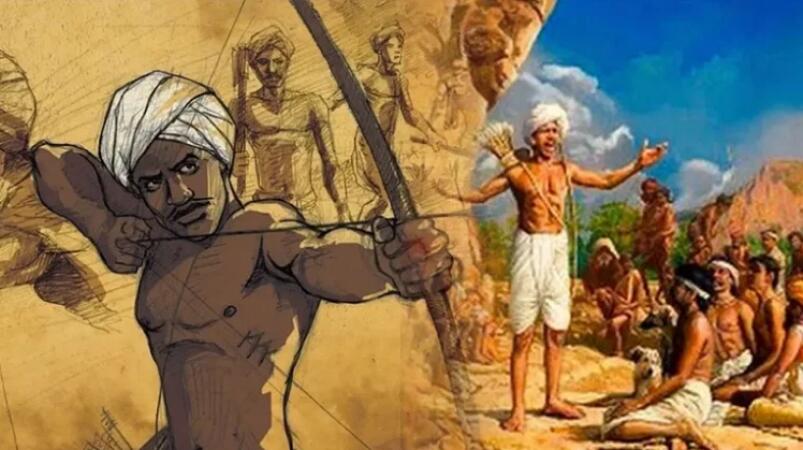India’s brave hero and Jharkhand’s beloved son, the great Birsa Munda’s story is both iconic & sensational. Though his birth details are not certified, it is widely believed that Birsa Munda was born on November 15, 1875, in Ulihatu, a small district in Ranchi, Jharkhand then (Bihar). At that time the region was under British colonial rule, where Birsa Munda and his tribe were subjected to severe oppression. Birsa Munda’s name remains one of the most notable among the freedom fighters of India, his role in the tribal uprising known as Ulgulan is remembered to date.
On his birth, the region witnessed heavy downpours with storms and hurricanes. There was a significant natural disaster in Jharkhand at the time. Soon after his birth, young Birsa Munda is said to have uttered “Sing Bonga,” which in Munda jargon meant the “Creator” or the Sun God. His early life was essentially one of strong identification with the tribal practices. He received his early education at a local school where he showed strong leadership traits from a young age. In his formative years, he witnessed the growing exploitation of indigenous tribes, by landlords and the British government, especially of the forest resources which are vital to the survival of his people. This was seen as one of the primary reasons for his activism.
In the latter half of the 19th century, the tribal people, especially of the Chotanagpur plateau region, were bludgeoned with heavy taxes by the British and their local associates. Birsa sensed the pain of his people and began to mobilize them against this oppression. Between 1886 and 1890, he began organizing the tribal masses against the oppressive British colonial regime.
By 1895, Birsa Munda had become a revered figure for the thousands of tribal people around him. He initiated the “Birsait” movement and struggled for the restoration of tribal rights over local lands and forests. His slogan, “Abua Raj, Adivasi Raj” (“Our Rule, Tribal Rule”), also stirred the hearts of the people. The momentum of this movement began to grow, as Birsa Munda’s call for social reform along with indigenous rights echoed everywhere across the region.
The true extent of Birsa Munda’s rebellion was witnessed in 1899 when he led the “Ulgulan” (the Munda Rebellion) against the British and their collaborators. The Munda tribe, under Birsa’s leadership, revolted in armed resistance. They attacked the government buildings, set British establishments on fire, and replaced the British flag, with the “Munda Raj” flag, as a testimonial to self-rule. The rebellion spread through the region and became a great challenge for the British authorities.
Strong on both strategic and spiritual grounds, Birsa advocated for self-rule, social justice, and the protection of tribal traditions. This led to a bitter clash with the British forces. He was captured on January 9, 1900, during a brutal suppression spree by the British, and died in British custody on June 9, 1900, under mysterious circumstances suspected to be the effects of torture.
Bhagwan Birsa Munda is an ideal figure, leaving behind a great legacy, as a symbol of tribal resistance and empowerment. His fight for the rights of the indigenous people continues to inspire movements all over India. In honor of his contribution, November 15th is celebrated as Janjatiya Gaurav Diwas — “Tribal Pride Day”, for the memory of Birsa Munda and the struggles faced by tribal communities. Bhagwan Birsa Munda in the Ulgulan challenged British colonialism and thus became an icon for the protection and preservation of tribal culture and land rights in India.
